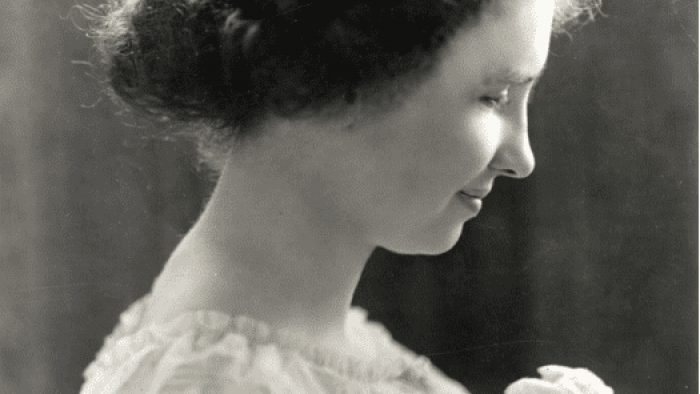Helen Keller (1880-1968)
Helen Keller was born in Alabama, USA, on 27 June 1880. By her second birthday, she had been overcome by illness, that left her deafblind. Throughout Keller’s childhood, she was examined by various doctors and none more so than Alexander Graham Bell, who subsequently sent Keller to the Perkins Institution for the Blind.
Keller soon began to learn the feel for objects, creating associations of spelled words through finger signals on her palm. She could then read sentences through raised words on cardboard, which were then arranged into a frame. As Keller’s education continued, she spent periods of time learning Braille as well as lip-reading, where she would place her fingers on the lips and throat of someone speaking, whilst simultaneously, the words were spelled out for her.
When Keller was 14, she enrolled at a school for the deaf in New York City and just 2 years later she was admitted in to the Cambridge School for Young Ladies in Massachusetts. She then went on to attend Radcliffe College in 1900, before becoming the first deafblind academic to graduate with a Bachelor of Arts Degree from college in 1904.
Keller was developing skills that had previously not been seen by similar people with disabilities. She began writing, particularly about blindness, and led her to writing several books including The Story of My Life published in 1903. The book outlines her early years, explores the challenges that she faced being deaflblind, but also the incredible people who supported her along the way. It is Keller’s account of triumphing over being deafblind.
In order to support World War 1 soldiers returning from the battlefield with blindness, Keller co-founded the American Foundation for the Overseas Blind in 1915. The Foundation later became the Helen Keller International.
In 1920, Keller co-founded the American Civil Liberties Union and became hugely influential in helping to improve the lives of people with deaf and blindness. She had great influence of large numbers of people with disabilities being taken out of asylums. Subsequently, Keller became a pioneer for women’s rights on disability and political and social issues. She travelled the world, delivering lectures on behalf of the American Foundation for the Blind.
In her later life, Keller was awarded the Presidential Medal of Freedom by President Lyndon Johnson for her tireless work and advocacy not just in America, but around the world. Just four years later, in 1968, Keller died peacefully at her home in Connecticut, but her legacy of advocating for deaf and blind people and women’s suffrage lives on all around the world today.






